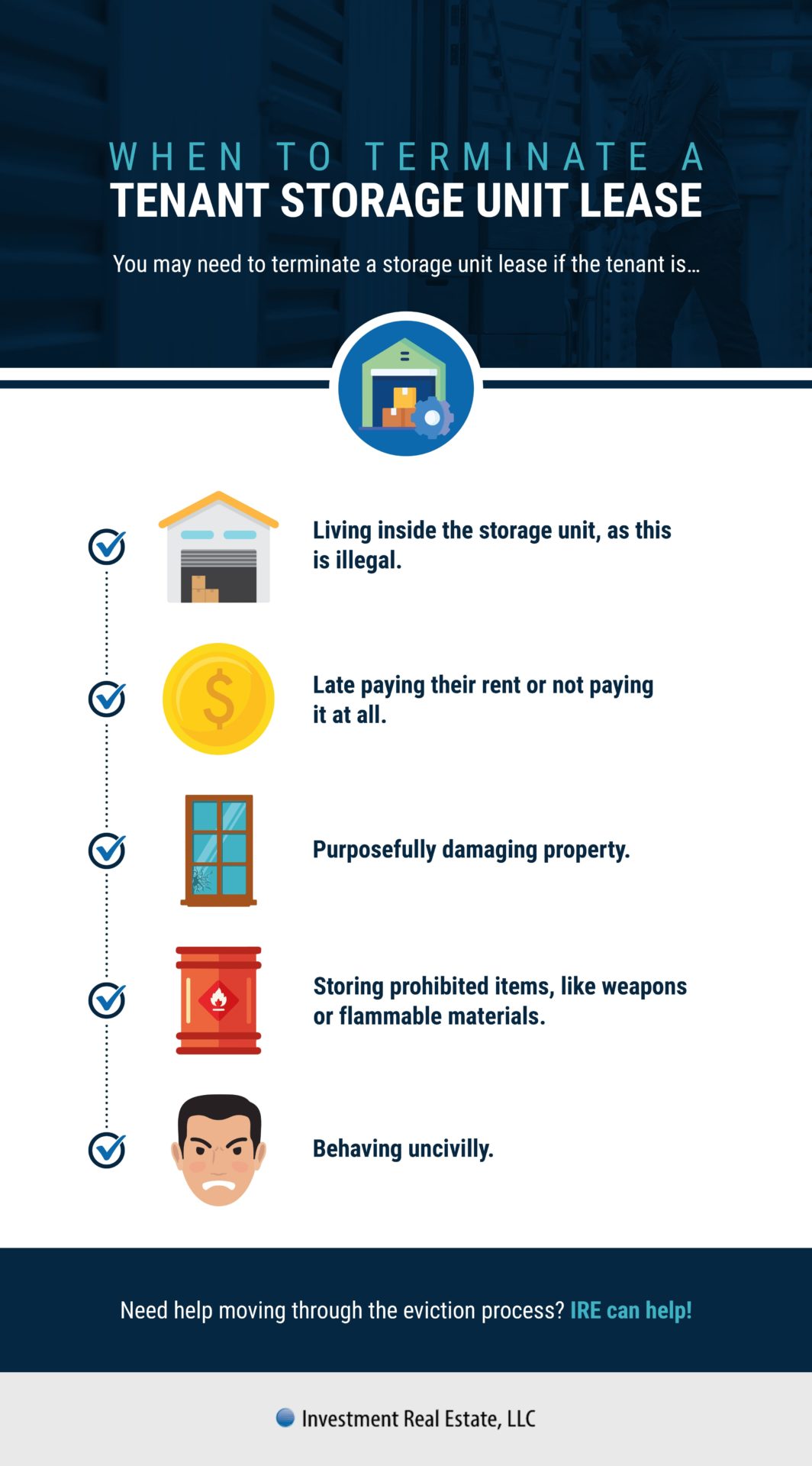Tenant Lease Termination: What You Need to Know

You work hard to increase your storage facility occupancy with good tenants. Unfortunately, there may be times when a tenant violates your facility’s rules or causes problems. If you decide the best option is to terminate the tenant’s lease, you have legal options to do so. Virtually every state has self-storage eviction laws that allow the facility manager to evict a tenant.
When to Terminate a Tenant Storage Unit Lease
Some common reasons for tenant eviction include:
- Living in the storage unit: Living in a self-storage unit is illegal. While you may be okay with your tenants accessing their units daily, they shouldn’t be sleeping in the unit.
- Paying rent late or not paying rent at all: Your tenants are obligated to pay their monthly rental fees on time. If they don’t keep up with their payments, they are violating their lease terms.
- Damaging property: Accidents can happen, but purposeful damage to your facility is grounds for lease termination.
- Storing prohibited items: Storing prohibited items like weapons, ammunition, flammable materials and live animals can put your facility’s safety at risk.
- Behaving uncivilly: Tenants must treat other tenants and facility employees with respect. If one of your tenants is harassing or being hostile to others on facility premises, you may decide to terminate their lease.

How Does the Storage Unit Eviction Process Work?
Whatever your reason for evicting a tenant, it’s crucial to do so legally. Eviction procedures vary from state to state, but there are a few general principles that apply to every eviction action:
- Every tenant lease should contain a provision covering the owner’s right to terminate the lease.
- Once an incident occurs that leads you to evict a tenant, you must send a lease termination letter to the tenant via certified mail and email.
- The letter must cite the termination provision in their lease and specify a deadline by which the tenant must remove their property from the storage unit.
- If you’re evicting a paying tenant, you’ll need to file eviction papers with your county court. The court order gives you the legal right to remove the paying tenant and strengthens your defense should the tenant contest the eviction.
Learn More About the Eviction Process
Eviction vs. Lien Sale
In most states, storage facility owners can place a lien — a legal claim to a person’s property — on the contents of a storage unit when the rent goes unpaid. However, eviction may be a better option when:
- You want the contents removed quickly: Some states require you to wait up to 90 days before you can exercise your lien rights.
- You want to evict the tenant for a reason other than nonpayment: Lien laws typically only apply to delinquent payments.
- You’re concerned about getting sued: A court-ordered eviction gives you the legal right to terminate your tenant’s lease, making it more difficult for the tenant to sue you.
Contact Investment Real Estate, LLC Today
IRE is a top self-storage real estate company serving the Northeast and mid-Atlantic states. Our experienced team can help you with all aspects of property management, including guiding you through the eviction process. Contact us today to learn more.

